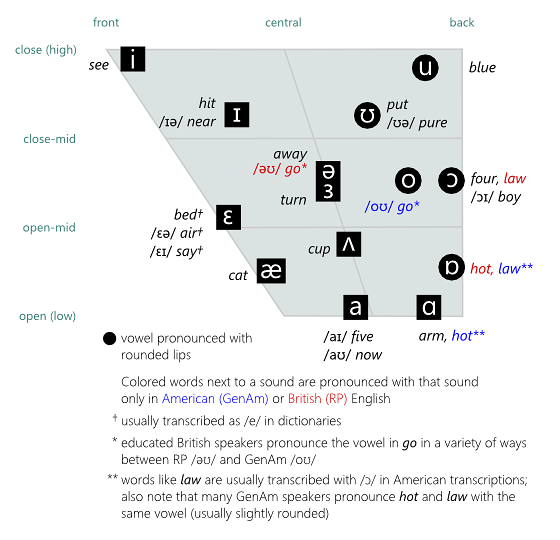Hello again.
Due to the fact that you’re able to read my
blog posts, I infer that you are either a native speaker of English or an
English learner. If you’re still in the process of learning the language, let me
ask you a question: How confident are you when it comes to pronouncing English
words correctly?
I have to admit that I am often not that sure whether I
pronounce words in the correct way or completely wrong. And this has to change.
That’s why I decided to improve my pronunciation step by step.
The first one is to decide on the English accent I favor.
In the pronunciation diary I keep, I answered this question at length, by listing different aspects of the accents that appealed to me. I think I will make it public
when it’s finished, so you can have a look at that. My final answer to the accent question is, that I want to learn how to speak proper American English.
Right. Now I know what I want to do, but
without any help, I won’t be able to improve much. At this point I looked at the
website of Antimoon because it was created by two Polish guys who mastered speaking American English nearly perfectly in only three years time. Seems like a good starting point.
I began by taking the pronunciation test
provided and scored 10/10. Yay! :) I obviously know the basics but I am
aware of the necessity to improve further. Without a proper English pronunciation,
people might not understand you, even though you talk to them without making
any grammar or vocab mistakes. It would be depressing to not be understood after
several years of studying English.
The next step provided on antimoon.com, is
the phonetic alphabet. It is useful when you want to find out how exactly a
word is pronounced, telling you also where the stress is.
On antimoon, there is a chart that shows you how the various vowels and consonants are pronounced. I listened to the American pronunciation and came to the following conclusion: I didn’t know
that there is a voiced sh in words such as pleasure, occasion and vision. That’s
something I will have to be aware of the next time I look up a word with an s. Also,
I have difficulties in pronouncing the v sound in the middle of a sentence. I have to
practice that as well as the u in put and could because it doesn’t sound like
the German u but lower, more like an a. Additionally, the sound æ in words such as cat and black has
to significantly differ from the e in met and bed. The last aspect of American
pronunciation I wasn’t actively aware of, is the ʊəʳ pronunciation of,
for instance, pure and tourist.  |
| VOWELS ! |
Now from the theory to my plan: I will, as recommended by the guys that set up antimoon, practice the
sounds I find difficult every day, just a few minutes, and eventually, hopefully improve.
Apart from the vowel and consonant
pronunciation, I think the hardest thing about speaking English is the correct stress of a word.
It’s something that you simply have to learn and so that is what I am going to
do. We were assigned about 700 words to learn until January and in order to
remember them longer than just for the exam, I will start studying them early. While learning them, it is essential to take a very close look at the pronunciation and the stress of
every single word, no matter how familiar it might seem.
Last but not least, besides studying vocab by
heart all the time I sometimes need some spoken input that I will get by watching English TV,
movies, by listening to English audiobooks and radio. With this exercise it is important to not just sit there, indulge myself and try to make out the main points. I have to pay attention to the pronunciation
of various words and look up some of them if I am not sure what they mean.
That’s it, actually – for now. I believe I'll have enough to do for some time but I am looking forward to my next blog post
related to pronunciation, which is probably going to be about intonation of
American English. It’s gonna be a lot of fun! ;)
Source: http://antimoon.com/
Source: http://antimoon.com/




